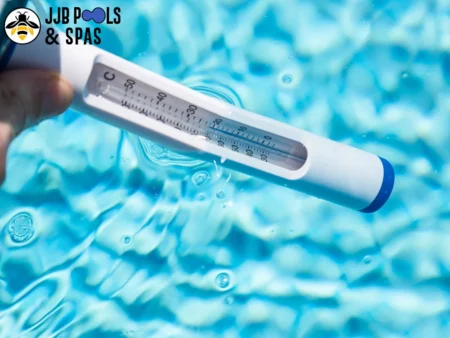
Many people in Florida enjoy using their home pools, and the cooler weather doesn’t stop them either. People near Tampa can still enjoy plenty of time in their pools when the weather gets cooler during the winter months, thanks to pool heaters that ensure the water remains at a comfortable temperature all year round.
Before investing your money in a pool heater, it is essential to know more about this pool equipment and the process involved to help you prepare for this next step in upgrading your home pool.
The Space Needed for Your Pool Heater
A pool heater will need at least 3-4 feet of space, so you should check whether this is possible with your existing arrangements. If you are having a new pool constructed at the same time, you can make decisions that ensure you can adequately fit and position a pool heater. However, if you already have a pool at home and find that you do not have enough space for a pool heater, you may need to consider renovating and making adjustments.
The actual size of the pool heater you need will also depend on the size of your pool. Every 10,000 gallons of water in your pool will require around 100,000 British Thermal Units (BTUs) to heat. If you are undecided, choose a pool heater that is slightly larger, as this can help to heat your pool faster and more effectively without causing strain.
Different Types of Pool Heaters
Like many appliances and devices, not all pool heaters are made equally. There are some important differences between different types of pool heaters that you should be aware of. A good pool company near Tampa will also be able to provide further advice about pool heaters and which version might suit your pool best.
Heat pumps are among the most common types of pool heaters. They take heat from outside and transfer it through a compressor and a heat exchanger. The other popular type of pool heaters are gas heaters, which work well in homes where there is a natural gas line. Heat pumps will use less energy, though they are typically more expensive than gas heaters. On the other hand, gas heaters may be cheaper but are not always as efficient as heat pumps. If you are unable to decide which type of pool heater to choose, speak with a pool company like JJB Pools and Spa for more guidance.
The Cost of Heating a Pool
Like other energy costs, you will need to pay to heat your pool. On average, you should expect to pay around $2,000 per year if you are using a heat pump. The cost will depend on the size of your pool and how long it takes to heat up, as well as the climate, how often you choose to heat up your pool, and your desired temperature. Gas heaters could cost as much as double the amount, especially if you want to heat your pool often throughout the year, although they heat much quicker due to higher BTUs.
Choose Your New Pool Heater
Decisions about a new pool heater will depend on various factors, including how often you intend to use your pool, the weather conditions you will be experiencing, and how warm you like the water to be. These factors will help you to determine the size and type of the pool heater, and it will help specialists at a pool company to give you the most valuable and tailored advice. To explore pool heater options and get further advice, speak to the team at JJB Pools and Spa near Tampa.
Picture Credit: iStock


